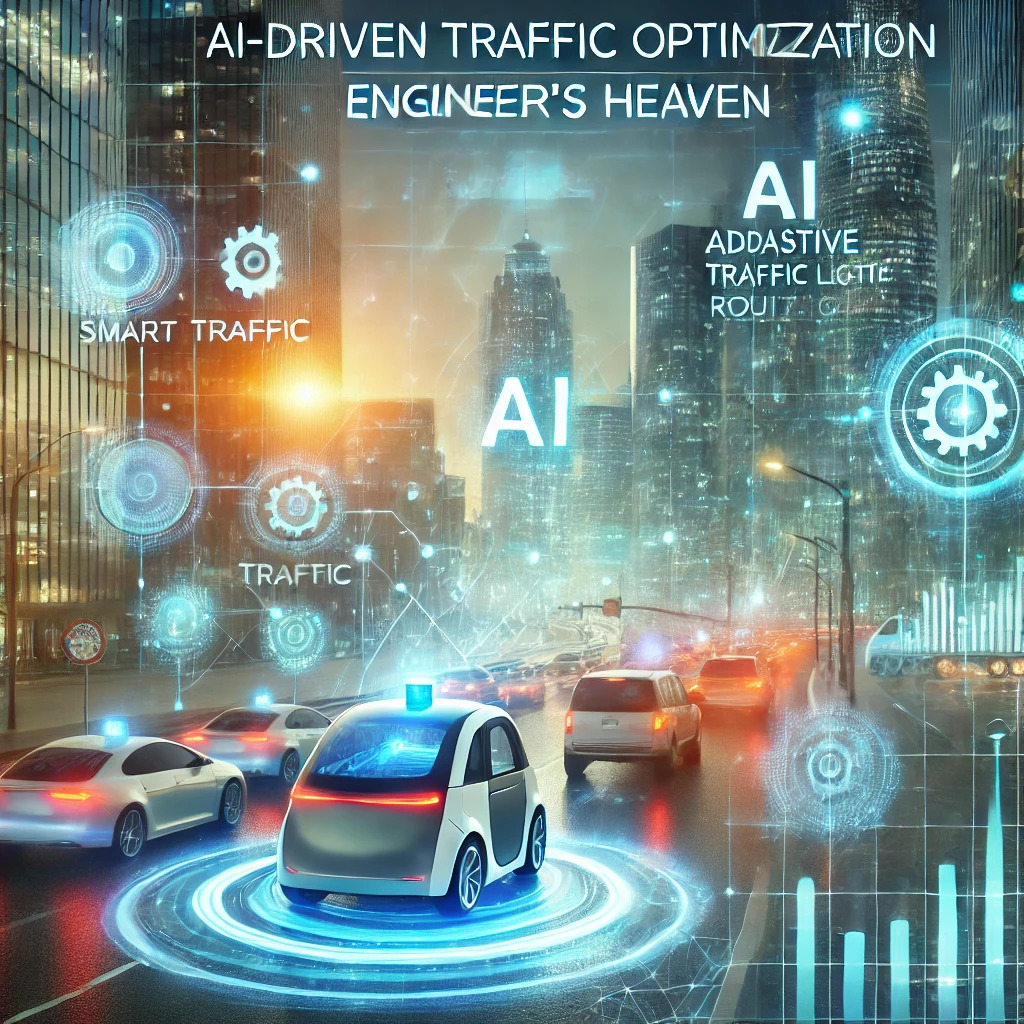The unwanted build-up of road vehicles is becoming harder to solve in metropolitan regions. This leads to the wastage of time, extra fuel consumption, and rise in the pollution levels. To tackle this, traditional systems often face problems integrating with real-time analytics. However, with the advent of Artificial Intelligence (AI) driven traffic flow AI optimization, cities around the globe are handling transportation more effectively than ever. Roads can now become more intelligent, safe and efficient.
How Is Traffic Management Getting Better Because Of AI?
AI utilizes powerful algorithms, machine learning and big data infrastructures to improve traffic flow. Here are several areas focused on:
Smart Traffic Control: AI based traffic lights change in tune with vehicle counts on the road by reducing unwanted pauses, thus improving traffic conditions.
Traffic Pattern Predictions: AI algorithms study previous data to analyze congestion and help city planners adopt suitable solutions.
Accident Detection Systems: Cameras and Sensors aided by AI are capable of identifying accidents, stalled cars or blockages which can then activate pre-set emergency actions.
Dynamic Traffic Management: These AI systems also suggest the shortest distance to destination using previously recorded information and actual traffic conditions.
Advantages of AI Regarding Effective And Efficient Traffic Control
Less Travel Delays: AI can proactively alleviate clogged bottlenecks as well as improve road usage worsened by heavy traffic.
Fewer Pollutants: Contributing to a greener environment through less idling time and fuel wastage.
Enhanced Safety: Artificial Intelligence (AI) helps detect and avert accidents by informing the emergency services and controlling the traffic lights.
Optimal Spending on Public Works: AI increases the efficiency of the existing networks which reduces the requirement for expenditure on additional highways and roads.
Actual Examples
Singapore, Los Angeles, and Tokyo have all adopted AI traffic management systems. In Los Angeles, AI-powered adaptive signals have been shown to cut travel times by up to thirty percent. Likewise, DeepMind is working with the British government on developing AI based urban traffic congestion solutions to help control city traffic.
The Future AI Holds in Traffic Management
Traffic management will be far easier in the future, especially with the development of AI and self-driving cars. AI will work with IoT devices, smart cars, and cloud servers to create a fully automated traffic environment.
If you are interested in working on engineering innovations AI in transportation or writing articles and posting pictures and videos on engineering, you should check out Engineer’s Heaven and become part of this innovative community!


